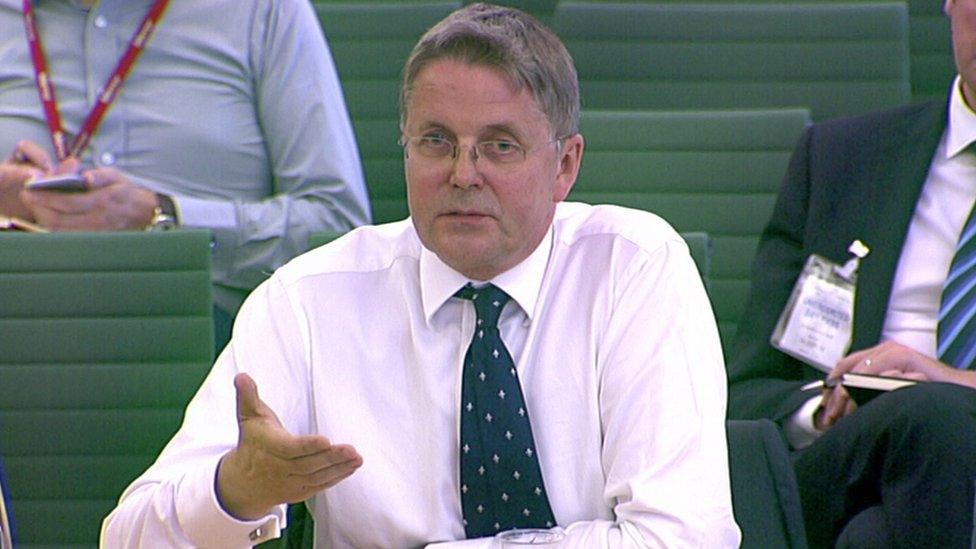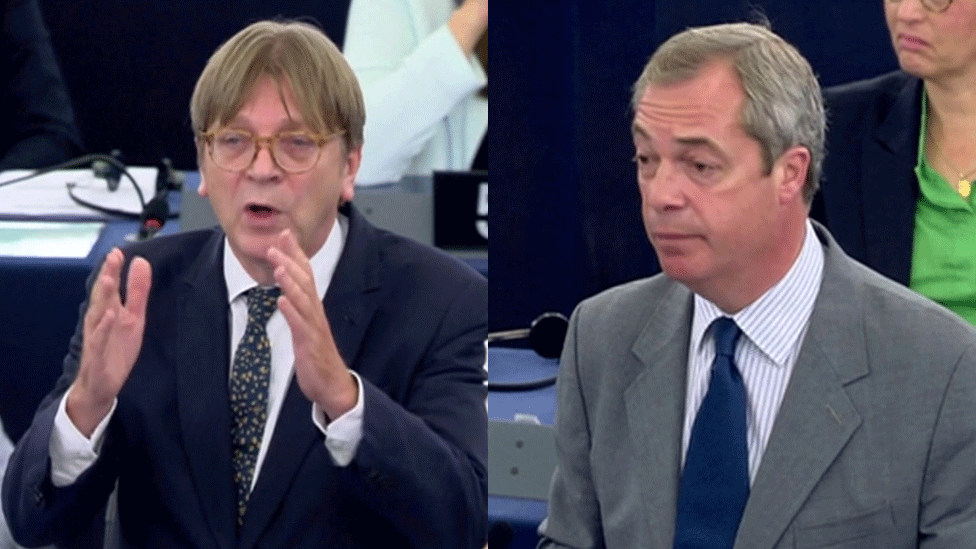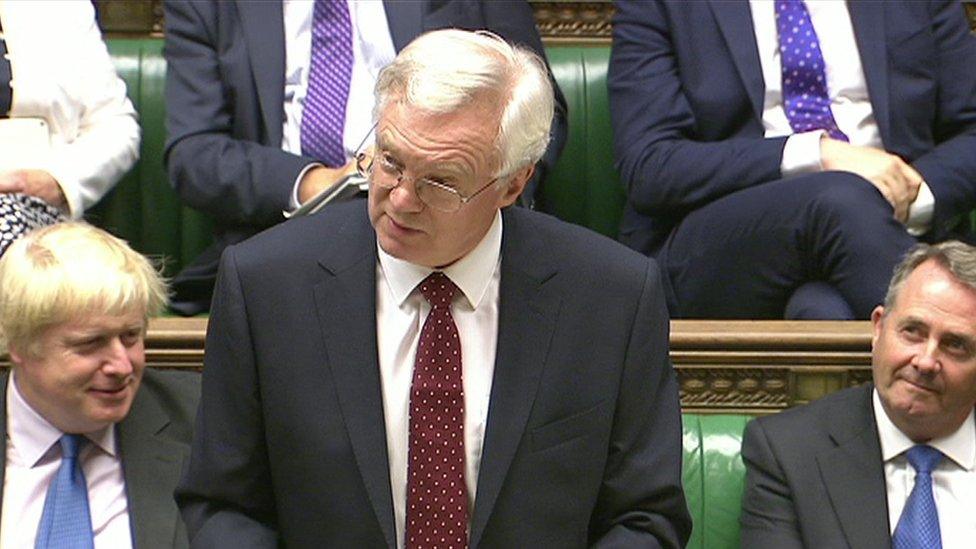Brexit: Cameron 'blocked' civil service talks with Leave campaigners
- Published

David Cameron told civil servants they could not talk to Leave campaigners in advance of the Brexit vote about their plans, the UK's top mandarin has said.
Sir Jeremy Heywood said the prime minister had imposed a "red line" on any talks in the run-up to the vote
But he rejected claims this had left Whitehall totally unprepared for the outcome of the 23 June referendum.
Officials had done a "significant amount of thinking" of their own about what a Brexit vote may mean, he said.
Critics have said the Brexit vote took the UK government completely by surprise and that it has struggled to catch up since - with ministers admitting a lot of work is needed before official negotiations on leaving the EU can even begin.
Sir Jeremy - who was the most senior civil servant in Downing Street in the run-up to the referendum and has remained cabinet secretary to Theresa May - said the EU referendum was not like a general election, where the civil service was obliged to talk to opposition parties about their plans for government in the run-up to the poll.
'Elaborate plans'
Appearing before the Commons Public Administration Select Committee, he told MPs there had been no formal contingency planning for a Leave vote, as the government's official position had been to remain in the EU.
"What we didn't do is what we do during a general election campaign, when you have a manifesto from the opposition that has very specific pledges and you actually engage and talk to the opposition directly to try to understand those," he said.
"We didn't go as far as that, and that I think is the red line that he [David Cameron] imposed."
Asked by Conservative Cheryl Gillan whether Mr Cameron had personally stopped officials from approaching Leave campaigners so they could do the same level of preparatory work on different outcomes as they would in a general election, he replied: "He did not want us talking to the Leave campaigners and working out elaborate plans for what would happen in the event of a Leave [vote]."
Sir Jeremy said there had been "no clear blueprint for Brexit" to implement in the event of a Leave vote but that did not mean no work had been done on such a scenario.
Civil servants, he said, had studied statements made by Leave campaigners during the campaign, including controversial suggestions that leaving the EU would free up an extra £350m a week to be spent on the health service.
Other "very useful background work" had been done on a range of issues, he added, including the extra capacity the civil service would need if the UK voted to leave the EU.
- Published14 September 2016

- Published5 September 2016
